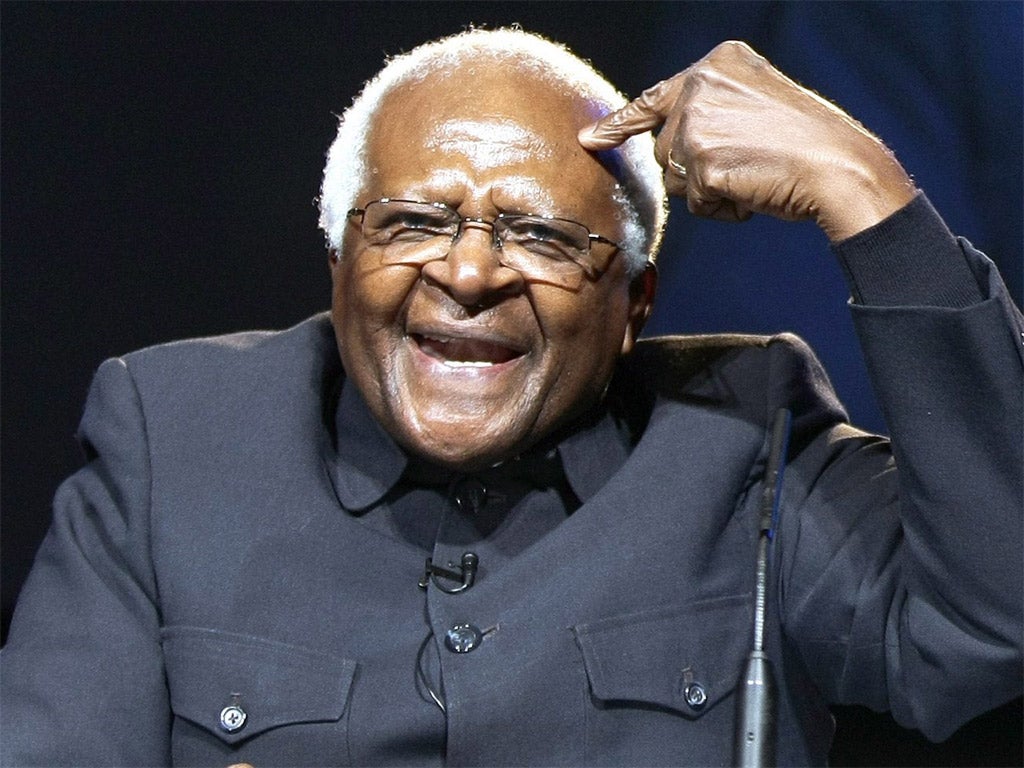Templeton Prize: Desmond Tutu wins a million – so will he follow the Dalai Lama and give it away?

Your support helps us to tell the story
From reproductive rights to climate change to Big Tech, The Independent is on the ground when the story is developing. Whether it's investigating the financials of Elon Musk's pro-Trump PAC or producing our latest documentary, 'The A Word', which shines a light on the American women fighting for reproductive rights, we know how important it is to parse out the facts from the messaging.
At such a critical moment in US history, we need reporters on the ground. Your donation allows us to keep sending journalists to speak to both sides of the story.
The Independent is trusted by Americans across the entire political spectrum. And unlike many other quality news outlets, we choose not to lock Americans out of our reporting and analysis with paywalls. We believe quality journalism should be available to everyone, paid for by those who can afford it.
Your support makes all the difference.When the Dalai Lama received £1.1m last year from the Templeton Foundation, he did what all good Buddhist monks who have preached against materialism might be expected to do – he gave it away.
Which puts a bit of pressure on Desmond Tutu.
This morning it will be announced that the charismatic South African clergyman and veteran human rights activist is this year’s winner of the Templeton Prize, an award which was set up as a religious answer to the Nobels.
The prize was created 40 years ago by the American-born British stock investor Sir John Templeton who felt that the Nobel awards honoured the contribution of science to humanity but failed to recognise religion. He stipulated that the cash prize should always be more than the Norwegian prize.
Each year the annual award goes to someone the US-based foundation believes has made an “exceptional contribution to affirming life’s spiritual dimension”.
The decision to award this year’s prize to the former Archbishop of Cape Town appears to solidify a recent move by the Templeton Foundation away from honouring scientists with pro-religious tendencies.
Since the mid-1990s the prize has almost always gone to academics with a scientific background who are sympathetic towards faith. Evolutionary biologist and atheist campaigner Richard Dawkins dismissed the prize as an award “usually [given] to a scientist prepared to say something nice about religion”, while others said the tactics were an underhand attempt to promote religion by linking it with science.
However, others defended the foundation. When Martin Rees, the Astronomer Royal and an atheist, was awarded the prize in 2011, he said he accepted because the foundation had routinely funded serious scientific study.
“I would see no reason to be concerned because they support a variety of interesting and worthwhile research projects in Cambridge University and many other places,” he said at the time. “The fact they have given this award to me, someone who has no religious beliefs at all, shows they are not too narrow in their sympathies.”
When the Templeton Foundation announced the Dalai Lama’s prize last year, it made much of the Tibetan leader’s embrace of science – in particular, the creation of learning institutes where fellow monks and young Tibetans could learn importance sciences to complement their traditional spiritual educations.
This year’s press release announcing Archbishop Tutu is distinctly more theist, with no mention of science.
Instead, Archbishop Tutu is praised for “his lifelong work in advancing spiritual principles such as love and forgiveness which have helped to liberate people around the world”.
In response to the prize, the octogenarian said: “When you are in a crowd and you stand out from the crowd, it’s usually because you are being carried on the shoulders of others. I want to acknowledge all the wonderful people who accepted me as their leader at home and so to accept this prize in a representative capacity.”
Join our commenting forum
Join thought-provoking conversations, follow other Independent readers and see their replies
Comments